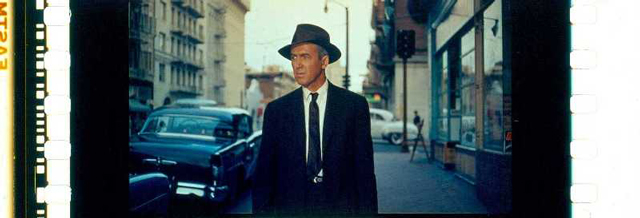Recap: Lessons Learned From The Music Box's 70mm Film Festival
By Rob Christopher in Arts & Entertainment on Mar 6, 2013 4:10PM
When the Music Box announced a two-week festival of 70mm films, practically every cinephile in Chicago went nuts. Because the Music Box is the sole remaining theater in Chicago still capable of exhibiting the wide gauge, ultra-high resolution format, many of us had never seen 70mm in action. The prospect of seeing nine different films in glorious widescreen was intoxicating. Partially as a joke, the theater decided to offer 70 all-festival passes at $70 a pop; much to the surprise of theater manager Dave Jennings, they promptly sold every one. In fact, as many festival-goers can attest, there were multiple sold out screenings. Pretty impressive for a theater that seats around 800 people.
To be blunt, 70mm (that is, 65mm for the image and 5mm for the soundtrack) is a vintage format. It's been overtaken almost entirely by IMAX, which is itself increasingly digital. In the last twenty years only a handful films have been shot in 65mm. One of them, The Master, was of course part of the festival, making a triumphant encore. Shown in a pristine print, it was tremendously impressive. But as with any vintage technology, there are bound to be problems and the 70mm Film Festival, alas, had more than its share.
Michael Phillips details the most serious: soundtrack problems with 2001: A Space Odyssey that forced cancellation of one of its screenings; a hideously faded print of Chitty Chitty Bang Bang; a missing soundtrack that scuttled Lord Jim from the lineup. We also personally noticed a minor sync problem with the soundtrack throughout the screening of 2001 we attended.
Tellingly, all these soundtrack problems were caused by the digital component of the screenings—the traditional celluloid part was just fine, thank you very much. The ongoing difficulties with 70mm, and for much of traditional film for that matter, have as much to do with our current technology as it does with the original, including a lack of necessary infrastructure and a somewhat jerry-built system for projecting film prints (the soundtrack is contained on digital discs which run on a separate machine in sync with the print—if those discs are compromised, you're SOL).
Kudos to the staff of the Music Box, and especially lead projectionist Douglas Maclaren, for handling these technical challenges with aplomb. It was their Herculean efforts behind the scenes, including basically rebuilding the Music Box's projector, that made the festival possible. When snafus did occur, everyone did a fantastic job of communicating to the audience what was going on. Traditional film, when properly maintained and skillfully projected, offers a matchless movie experience. Just ask any of the star-struck moviegoers who made it to Playtime or Vertigo. You really do see a movie differently when you see it on film.
The sad reality is that an awful lot of traditional film is not being properly maintained. According to Jennings, the only 70mm print of Stanley Kubrick's Spartacus he could track down was the one in the AMPAS archives (and that's obviously not being loaned out to anyone). The reason Chitty Chitty Bang Bang was pink? It's an original print from 1968 that's faded over time, and it's also the only 70mm print out there.
The Music Box didn't show Cleopatra, Ben-Hur, Ryan's Daughter, The Sound of Music, or It's a Mad, Mad, Mad, Mad, World; and print scarcity was undoubtedly a major factor. Nevertheless, there are prints out there. The Film Society at Lincoln Center just had a festival of their own in December, See It in 70mm!, that included several gems not shown at the Music Box.
So we'd like to issue a challenge to the Music Box: Mount a sequel. Use your wiles, your connections, and even a little black magic if necessary to track down more 70mm goodies (psst: try Paul Allen and the Seattle Cinerama folks.) The success of the recent festival has proven there's grassroots interest in the format. And who wouldn't want to see My Fair Lady or Terminator 2: Judgment Day larger than life in 70mm?
